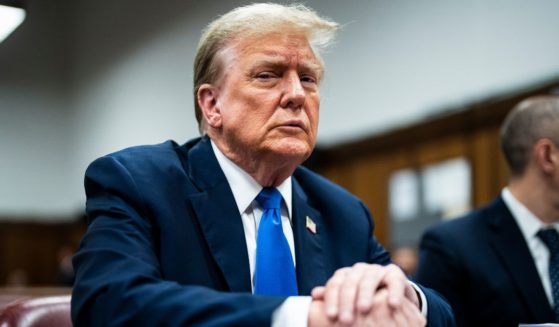Trump Takes Aim at Companies Strengthening Chinese Military with American Money
President Donald Trump is barring Americans from investing in companies that U.S. officials say are owned or controlled by the Chinese military.
The Chinese government accused Washington of using national security as an excuse to hamper competition and said Friday that Trump’s order would hurt American and other investors worldwide.
The impact of Thursday’s order wasn’t immediately clear, but it could add to pressure on companies including telecom equipment giant Huawei that already face U.S. import bans and other sanctions.
China’s foreign ministry on Friday accused Washington of “wantonly suppressing Chinese companies under the pretext of national security” and violating market principles.
“The U.S. government maliciously slandered China’s military-civilian integration development policy out of political motives and abused national power to unreasonably suppress Chinese companies,” Wang Wenbin, a foreign ministry spokesman, said.
“This move will not only seriously damage the legitimate rights and interests of Chinese companies, but will also damage the interests of investors from all countries, including the United States,” Wang said.
He said Beijing will “firmly safeguard” the rights of Chinese companies, a familiar statement that often results in no action.
U.S. officials complain China’s ruling Communist Party takes advantage of access to American technology and investment to expand its military, already one of the world’s biggest and most heavily armed.
Thursday’s order said the companies targeted “directly support” the Chinese military, intelligence and security apparatus.
It said Beijing “exploits United States investors” to finance military development.
The order bars American investors from conducting transactions in publicly traded securities issued by any Chinese companies linked to the Communist Party’s military wing, the People’s Liberation Army.
The Pentagon earlier designated 31 companies as being owned or controlled by the Chinese military. Many are military contractors or state-owned companies such as phone carrier China Telecom Ltd.
But the list also includes Huawei Technologies Ltd. and Hikvision Digital Technology Co., which say they are private and deny they are controlled by the military.
Hikvision criticized its inclusion in Thursday’s order as unjustified. The company said it is independent of the PLA and never has participated in research and development for “military applications.”
“As we have shown time and again, Hikvision is not a ‘Chinese military company,’” a Hikvision statement said. “These punitive actions against the company do not make America, or the world, any safer.”
Most of those companies have no shares traded in the United States but many sell stocks, bonds and other securities in markets outside mainland China that are accessible to American investors.
The Western Journal has reviewed this Associated Press story and may have altered it prior to publication to ensure that it meets our editorial standards.
Truth and Accuracy
We are committed to truth and accuracy in all of our journalism. Read our editorial standards.












